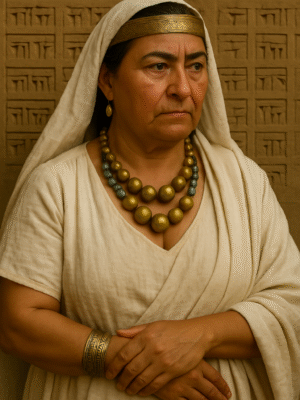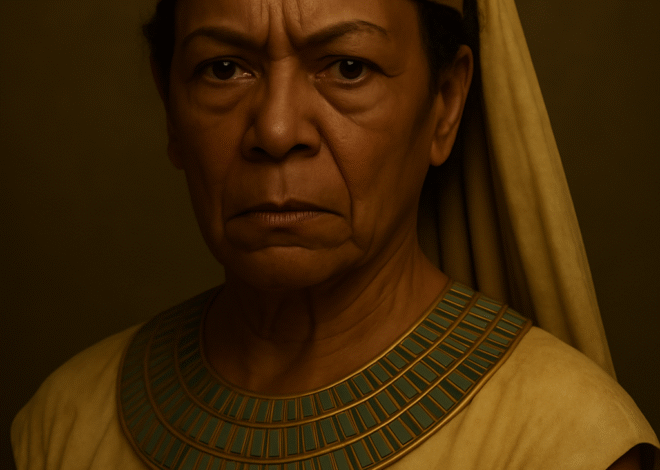
Kubaba (c. 2400 BC – Unknown)
Kubaba (c. 2400 BC – Unknown) Kubaba was the first recorded female ruler in history, reigning over the Sumerian city-state of Kish. She was originally a tavern keeper before ascending to power, and her reign was marked by stability and prosperity.
Kubaba, also known as Kug-Bau or Ku-Baba, holds a unique place in history as the first recorded female ruler. She reigned over the Sumerian city-state of Kish, a significant power in ancient Mesopotamia. Her rise to the throne is particularly fascinating, as she was originally a tavern keeper before ascending to power. The Sumerian King List, a chronicle of rulers that often blends history with legend, credits her with an astonishing 100-year reign. While this duration is likely exaggerated, her leadership was marked by stability and prosperity, making her a noteworthy figure in early civilization.
Kubaba’s inclusion in the Sumerian King List is remarkable because the title used for her was “lugal,” meaning “king,” rather than a feminine counterpart. This suggests that she was recognized as a sovereign ruler in her own right, rather than merely a consort or regent. The King List describes her as “the woman tavern-keeper, who made firm the foundations of Kish,” implying that her rule was seen as beneficial and stabilizing. Her reign followed a period of kingship in Mari and preceded the rise of Akshak, demonstrating the fluid nature of power in ancient Sumer.
The circumstances of Kubaba’s rise to power remain somewhat mysterious. One source vaguely states that she “seized” the throne, while another, the Weidner Chronicle, provides a more detailed—though propagandistic—account. According to this text, Kubaba fed a fisherman and persuaded him to offer his catch to the temple of Esagila, an act that seemingly led to her divine favor and eventual rule. While this story may be more legend than fact, it reflects the importance of religious devotion in Mesopotamian society and suggests that Kubaba’s rise was seen as divinely sanctioned.
Kubaba’s legacy extended beyond her own reign. Her son, Puzur-Suen, and grandson, Ur-Zababa, continued to rule Kish, forming the Fourth Dynasty of the city-state. Some versions of the King List suggest that the kingship briefly moved to Akshak before returning to Kish under her descendants. This continuity indicates that Kubaba established a lasting dynasty, further cementing her influence in Mesopotamian history. Despite the limited historical records, her impact on Kish and its governance is undeniable.
Beyond her role as a ruler, Kubaba’s name bears an intriguing connection to a later goddess of the same name, though scholars debate whether the two figures are related. The goddess Kubaba was worshiped in Anatolia and later became associated with the Phrygian mother goddess Cybele. While there is no definitive link between the queen and the deity, the recurrence of her name in religious contexts suggests that her legacy endured in various forms. Whether as a historical monarch or a legendary figure, Kubaba remains an essential part of the narrative of early female leadership in human history.









Hi, this is a comment.
To get started with moderating, editing, and deleting comments, please visit the Comments screen in the dashboard.
Commenter avatars come from Gravatar.